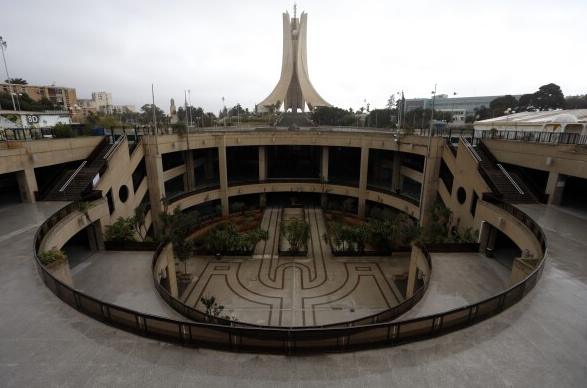While France rejoiced in her triumph over the Nazis on May 8, 1945, Algeria, which was then a colony of France, struggled with a more sinister period in its past. The intricacies of colonial legacies and independence movements are shown by the striking difference between these two commemorations.
As a mournful tribute to the heroic men who fought in World War II, French President Emmanuel Macron lay a wreath at the Arc de Triomphe. However, on the other side of the Mediterranean, Algeria marked the beginning of a passionate drive for self-determination across former colonial territory with a solemn commemoration of the savage repression on its independence militants.
The courageous protesters who dared to take to the streets in cities like Guelma, Sétif, and Kherrata to seek freedom from the French tyranny were honored with festivities in Algiers. The brutality done by the invaders to suppress national autonomy aspirations was brought to light in the moving speech delivered by Algerian President Abdelmadjid Tebboune on May 8, 1945.
Despite their strong energy, security, and economic links, tensions between Algeria and France continue to linger. More than sixty years after Algeria’s bloody fight for independence, Tebboune’s direct remarks are a sobering reminder of the unspoken animosities that persist to this day.
During his forthcoming trip to France, Tebboune has hinted that he intends to discuss the thorny issue of historical justice. The unwavering will of Algeria to address historical injustices is mirrored in his demand for an impartial examination of historical facts.
The cordial relationship between Macron and Tebboune during Macron’s 2022 visit to Algeria is symbolic of the efforts made towards reconciliation. We made great strides forward when we formed a joint panel of historians to propose reconciliation approaches. The commission revealed its proposals this year, and one of them was to return artifacts and documents held in French archives to Algeria.
Yet problems still exist; for example, Algerian politicians are calling for monetary reparations for French nuclear experiments in the Sahara and, most importantly, for France to formally apologize for the crimes it committed during its colonial rule. Far-right nationalists, who want to minimize or rationalize historical injustices, have been particularly critical of Macron’s attempts to address France’s colonial past.
As he deals with these problems at home, Macron is under pressure to explain how he plans to address France’s colonial past while still building bridges to its former colonies. The intricate interactions between France and Algeria are a sobering reminder of the still-present effects of colonialism and the need to address past wrongs in order to foster true understanding and reconciliation.


















